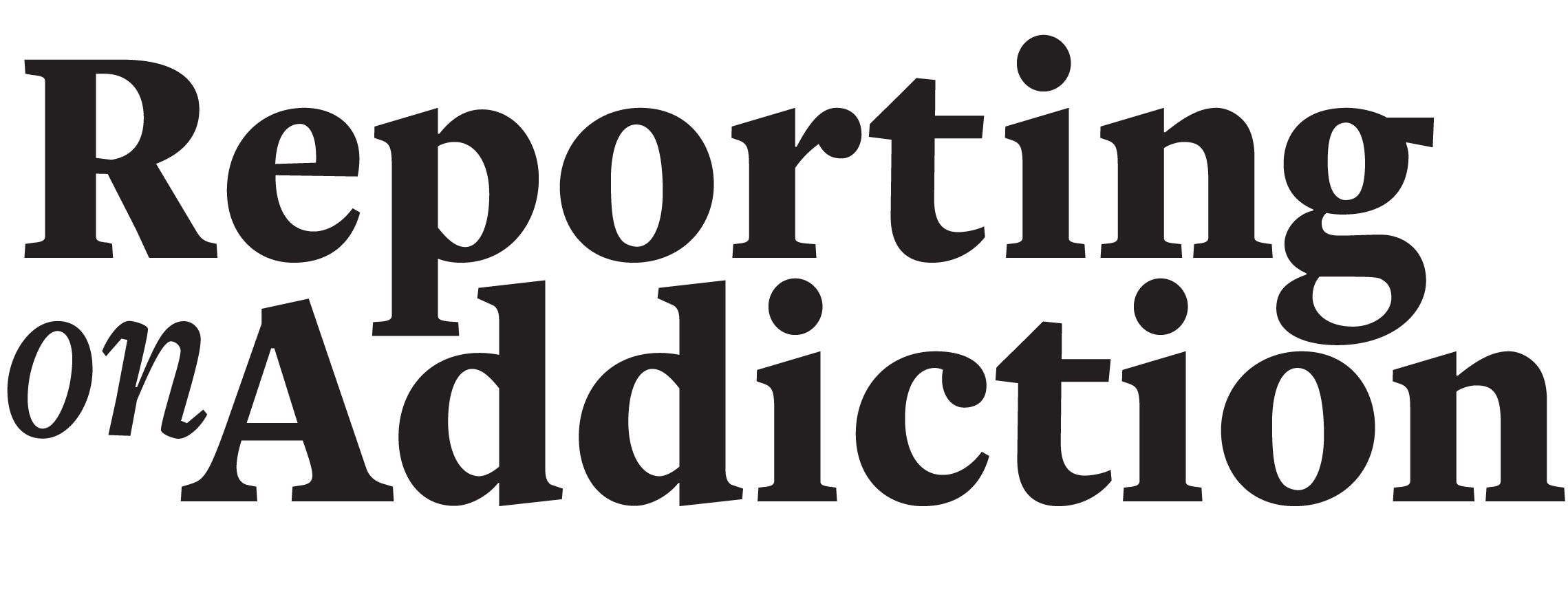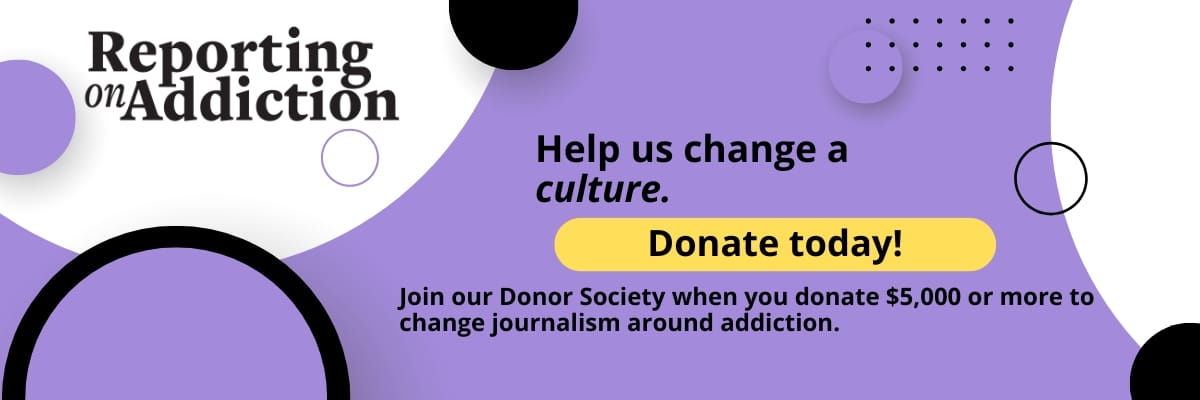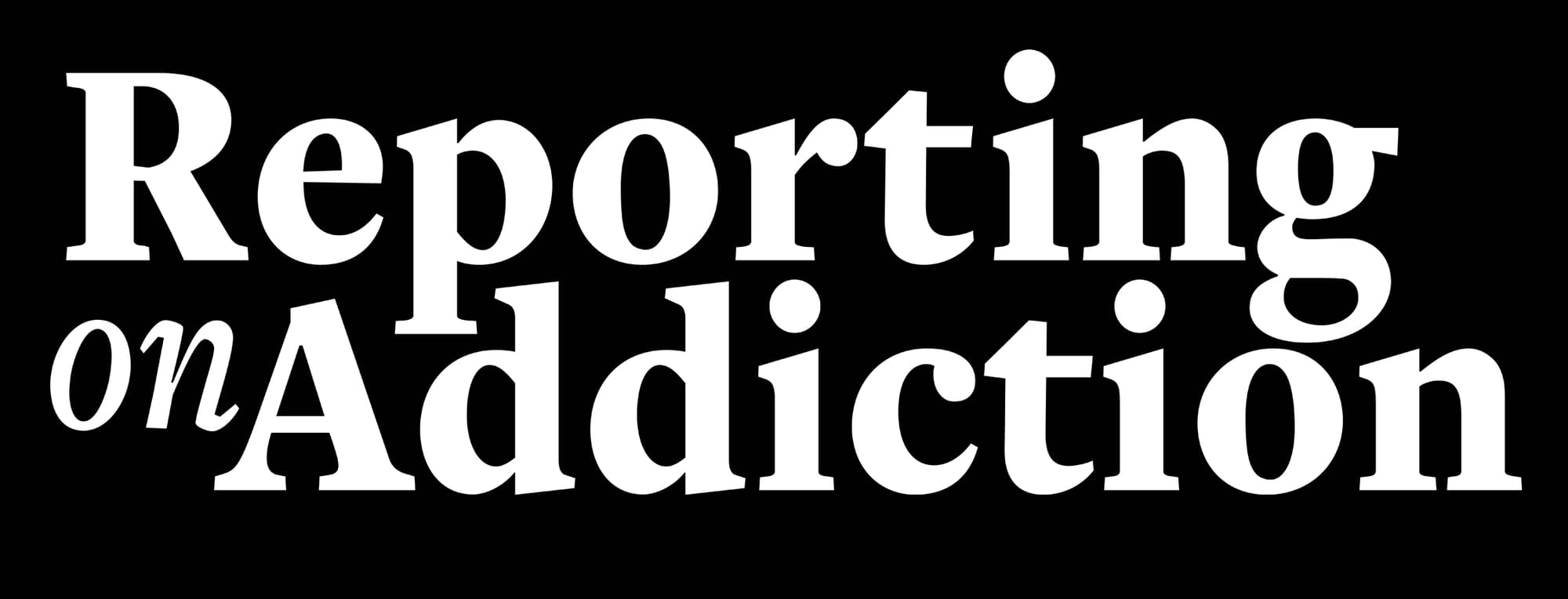RoA Update Fall 2023

Hi everyone,
We’ve had quite the summer! Since we last updated in June, we launched the first-of-its-kind Reporting on Addiction Visual Style Guide, trained a new cohort of journalism educators to implement our curriculum in their courses, and conducted one-on-one assistance with professional journalists.
Keep reading to learn more about these new resources and discover opportunities for you to get involved. And please forward this email to help us spread the word of these new vital resources for journalists!
Visual Style Guide
Ethical journalism’s first principle is to do no harm, and because of its lasting impact, the visuals we use must be highly intentional and thoughtful to preserve the dignity of our sources while also informing our audiences about addiction as a disease.
Since we first launched Reporting on Addiction, we heard from many community members about the harmful effects of traditional and unethical visual journalism in addiction-related content and the need for guidance and support in this area.
After more than 18 months of work, we released vital resources for creating ethical visual journalism about addiction, including:
- A one-page evidence-based ethical visual creation guide
- An expanded style guide with more details
- College journalism course curriculum
- Subject-specific trainings for newsrooms and experts
- Panel discussion on reducing stigma in visual journalism
- and more to come!

Everything we do at RoA includes the communities that are directly impacted by our work – professional and student journalists, educators and experts through training and experience – so we’d like to thank the folks below who assisted in the creation and review of this resource.
- Meg Vogel, Pulitzer Prize-winning photojournalist
- Dr. Camille Coiffi, Prevention Science Institute, U of Oregon
- Marc Jackson, Jobs and Hope WV
- Dr. Hendree Jones, UNC Dept. of Obstetrics and Gynecology
- Rachel Molenda, Philadelphia Inquirer
- David Smith, WVU Reed College of Media
- Abby Spears, AppalAction: Appalachian Action Network
- Dr. Martha Tillson, Center on Drug and Alcohol Research, UK
- Jesse Wright, WVU Reed College of Media
Training Journalism Educators
This July, we added 8 more college and university educators to our cohort of professors and student media advisors using our curriculum in their classrooms and newsrooms. That puts our curriculum in 12 universities in 10 states!
In our two-week training sessions, we worked with these educators on the basics of addiction science and stigma, how that stigma appears in the media and helped them integrate our model curriculum into their courses – which includes lectures, assignments and activities to use in the classroom.
This year’s cohort included educators from:
- Ithaca College
- North Carolina State University
- Northwestern University
- Penn State University
- St. Mary’s University
- Stetson University
- Stony Brook University
- University of Kentucky
Interested in becoming part of the next cohort? Know educators that might be interested? Let us know you’re interested for 2024 here!
Opioid Settlement Resources for Journalists
As part of our continued effort to help journalists cover the hundreds of millions of dollars in opioid settlement funds entering their communities, we hosted our second fireside chat in August. These 30-minute sessions help explain a set of resources journalists can use in their reporting and give them story ideas they can use the resources for.

Our August chat featured Kate Boulton of Vital Strategies and Christine Minhee of OpioidSettlementTracker.com who shared with us how to use the state-by-state guides they’ve created that breakdown each state’s funds and the guidance overseeing their distribution and spending. View the recording of the conversation here.
To receive updates about the the opioid settlement resources directly into your inbox - change your settings here or reply to this email!
Training Professional and Student Journalists
In the last few months, we’ve provided one-on-one and small group support to reporters covering addiction including journalists reporting on tribal communities and a team of public newsroom journalists in southeast Ohio. We also have completed newsroom trainings with:
- University of Wisconsin Center for Ethical Journalism, in partnership with the Wisconsin Press and Broadcast Associations
- Side Effects Media/WFYI
- Report for America
- Carter Center’s Local Newsroom Collaboration
- and more!
Resources In Progress
We are extremely grateful for your continued support of Reporting on Addiction! Alongside celebrating the new resources and progress made the last few months, we also wanted to give you a peek behind the scenes into what we’re currently working on and updates on previously discussed resources.
Complicating the Narrative Fellowship
As we mentioned in the last update, our co-founder and co-director Ashton Marra was selected to be a member of the prestigious cohort of Complicating the Narrative Fellows through the Solutions Journalism Network!
As part of this work, Ashton will create a microgrant to financially support solutions-focused addiction, treatment and recovery stories. She’ll be rolling out the application this fall, so please keep an eye on your inbox! In the meantime, if you know journalists interested in reporting on addiction - forward this newsletter, so they can join our community!
Toolkits
Thanks to feedback we’ve heard from many of you, we are in the process of creating topic-specific toolkits to provide reporting tips, context and additional resources about current topics.
As part of our mission, everything we do relies on working with journalists, experts through experience and experts through training to ensure the resources we create will be applicable and impactful. Keep an eye on your inbox for when these vital toolkits launch! Have a topic in mind? Reply to this email to let us know!
Reporting on Addiction is not possible without your guidance, support and engagement. We appreciate all that you do to spread the word and advocate for our resources to be used in your communities. As always, we’d love to hear from you about what we’re doing or could be doing to make an impact.
And if you have the ability, your financial support can also help us continue this work. Make a tax deductible gift here today.
Happy fall!
The Reporting on Addiction team



